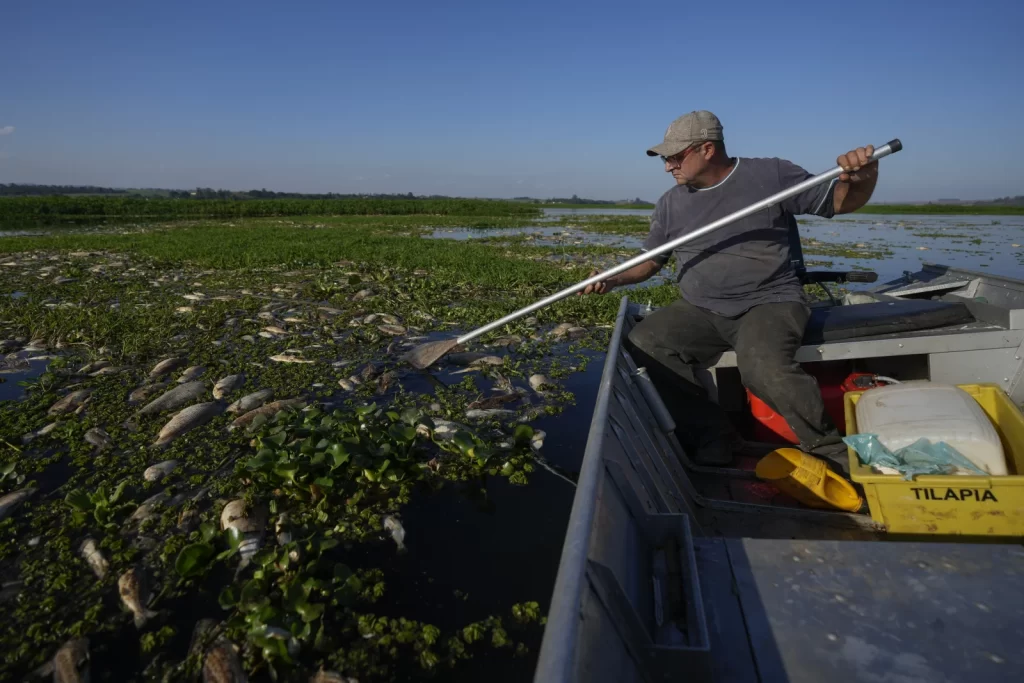Reports have emerged of another mass die-off of fish in Tanqua, about 60 kilometers (37 miles) from the city of Piracicaba, Brazil where news of dead fish first surfaced. This alarming event underscores the severe environmental challenges facing the region.

The Piracicaba River, which runs through one of the oldest regions of occupation in Sao Paulo state, has historically served as a vital waterway. It was used for navigation by small steamers and supplied water to sugar cane and coffee farms, according to the country’s national statistics agency.
This latest incident in Tanqua is part of a broader pattern of environmental distress. Last year, a severe drought in the Amazon also resulted in the death of huge quantities of fish. The drought’s impact on aquatic life has been devastating, highlighting the urgent need for sustainable water management practices and environmental conservation efforts.

Environmental experts are raising concerns about the frequency and scale of these die-offs, which they attribute to a combination of factors including pollution, climate change, and poor water management. Immediate actions and long-term strategies are necessary to mitigate the impact of such environmental disasters on local ecosystems and communities.

The Brazilian government and environmental organizations are urged to investigate the causes of these mass die-offs and implement measures to prevent future occurrences. Protecting the biodiversity of the Piracicaba River and other affected regions is crucial for maintaining ecological balance and supporting local livelihoods.



